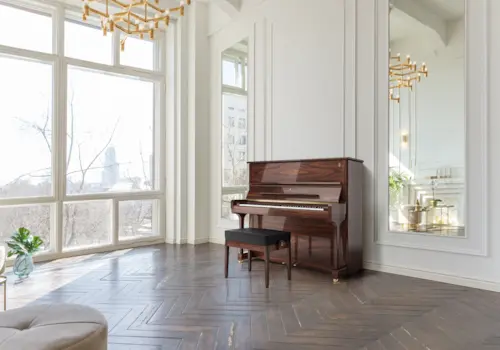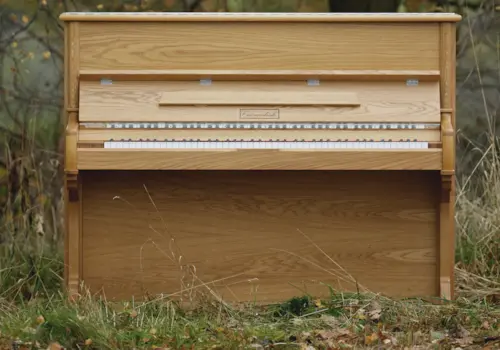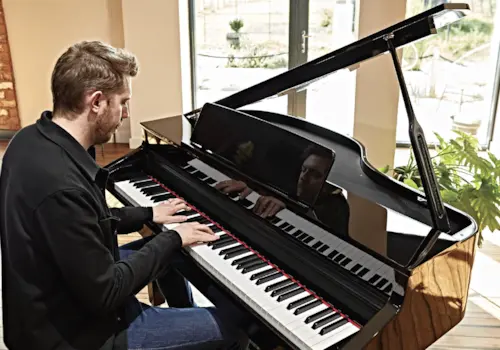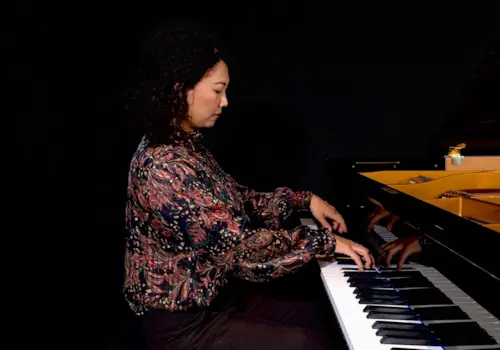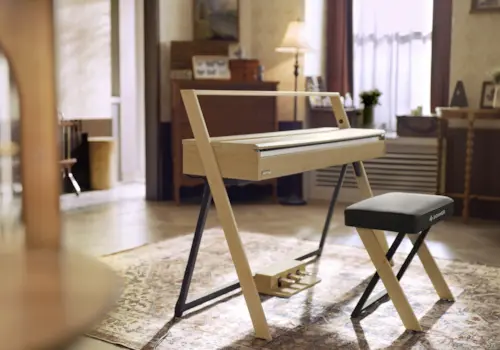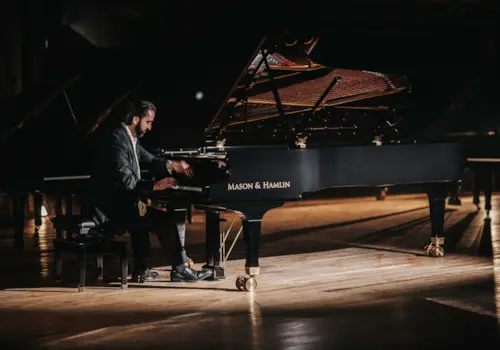19 April 2012
|
Engaging, intelligent, imaginative and fearsomely talented, Yuja Wang is so much more than reports of her daring wardrobe choices would suggest. Jessica Duchen meets the fast-rising Chinese star
You can’t judge a book by its cover. People do, of course, but what you think you see isn’t always what you get. In the case of Yuja Wang, you might well see a glamorous young Asian woman and a lot of hysterical reporting about a very, very short skirt, not to mention plenty of patronising comments about how of course she sounds as lovely as she looks. What you get, though, is one of the most sophisticated young musicians currently making the rounds of the international concert circuit: a questing, thinking artist with a sharp mind and a ferocious sense of humour, now performing and recording with revered conductors like Daniel Barenboim and Claudio Abbado.
Look at it another way: is the image perhaps a good match for the artistry after all? The dress that caused the fuss was bright orange, modern, upmarket and edgy: a characterful and entirely up-to-date costume for an expressive musician who is determined to be her own person, in her own time, in her own way.
The past year has been chock-full of landmark events for Wang: she has made debuts at the Tanglewood Festival, the Hollywood Bowl and in recital at Carnegie Hall (where, incidentally, she wore a traditional long black gown – with a split up the side). Currently tackling about 110 concerts a year, she is undoubtedly building her career in the fast lane. And justifiably so: the San Francisco Chronicle, for one, has declared that she has ‘a practically superhuman keyboard technique with artistic eloquence that is second to none’.
I caught up with her just after she arrived in London this past summer for another vital debut, this time at the BBC Proms, where she was to perform Bartók’s Second Piano Concerto. Even through some severe jet-lag – she’d just flown in from Cleveland – Wang was more than ready to joke, observe and spar, ever irrepressible.
The ‘Hollywood Bowl Dress’ incident had recently hit the press, but, Wang insists, life is just too short to stew over such things. The fuss, she remarks, struck her as ‘a little retrograde. First of all, I’ve been playing a lot – I did the Rachmaninov Second and Third Concertos and the Rhapsody on a Theme of Paganini in Verbier, Tanglewood and Hollywood and I did Prokofiev No 3 yesterday in Cleveland before coming here and doing Bartók No 2. That’s five concertos in two weeks. So I didn’t have time to care about the reviews.’
Pigeon-holes are no friend to any artist at the best of times, and as if the glamour-girl hoo-ha wasn’t enough, Wang has also had to contend with a second and equally unwelcome stereotype: the misapprehension that fleet-fingered, youthful pianists from the Far East must be first and foremost technical whiz kids. ‘Pigeon-holing is very convenient for shopping,’ she quips, ‘but I think for artists it’s unnecessary.’ And if a large number of gifted young pianists are currently emerging from China, there could be good reasons for it.
Despite its robust capitalistic attitude today, China is still officially a ‘people’s republic’. Before the collapse of the USSR, there were many links between the two people’s republics. That’s probably why the country that has since produced Wang, Yundi Li and Lang Lang was home to a number of émigré Russian teachers who brought with them the famous traditions of their native schools of music. Russian culture – of many kinds – pervaded Chinese life and education, says Wang: ‘We read a lot of Russian literature and a lot about communist ideas.’
But positive influences came from certain inherent Chinese attitudes as well: ‘The good thing about Chinese teachers is they often feel they’re not adequate, so they have an open-minded curiosity to listen, or to go to a masterclass by foreign professors to learn more,’ says Wang. ‘They’re also very strict. All this has helped with the general level of Chinese students. I was lucky because I did have lots of performance opportunities – that is a totally different thing. It was quite organic and felt comfortable for me.’
‘I started playing the piano really naturally because everything I heard from the beginning was through music. I studied with only one teacher from the age of seven to 14. She was Russian taught, but she had all the great recordings of a very European approach to music. She talked a lot about sound. She really loved Kissin, so I heard all his Chopin recordings when I was nine. My teacher also liked Argerich, and I liked Alfred Cortot; I found him extremely poetic and very inspiring. Horowitz? I don’t care what other people think – for me, he’s just so gripping. And Rachmaninov – very sincere playing.’ [Cont...]
Read the full interview inside this issue of Pianist

